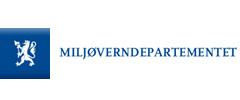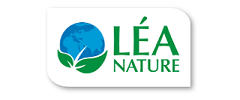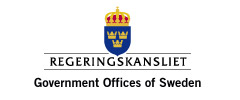USA prepare for ban of Bisphenol-A
USA politician demands ban of Bisphenol-A in Babybottles (Article in German and English)
07.04.2005 |Sascha Gabizon
Legislature considers bill to ban chemical from kids' products
Bisphenol A found in pacifiers, toys and baby bottles
Jane Kay, Chronicle Environment Writer
Thursday, March 31, 2005
An obscure chemical in hard plastic baby bottles, liners inside canned food and some water containers lies at the center of controversy as the California Legislature considers a bill to ban it in children's products.
If passed, California would be the first state to limit its use.
Bisphenol A -- the prime chemical in making the polycarbonate plastic popular in durable, clear Nalgene water bottles -- has come under increasing scrutiny in recent years from scientists who caution that it's found in thousands of consumer products and has invaded the human body.
Industry representatives say the chemical in the products remains at insignificant concentrations, and they maintain that nationwide tests compiled by the Centers for Disease Control and Prevention show that the bisphenol A levels in people aren't worrisome. The Food and Drug Administration permits its use.
But researchers have found that at doses below or at a federal safety guideline, the chemical can disrupt hormone systems of lab animals, affecting the workings of their brains.
Bisphenol A has been used for decades in the manufacture of tough plastics known as polycarbonate plastics. The plastics make up a wide variety of products, primarily food and drink packaging and containers such as hard, clear and sometimes tinted Nalgene water bottles, and in toys, pacifiers, baby bottles and teethers.
The chemical is also used in epoxy resins that coat food cans, bottle tops and water supply pipes, and as sealants for children's teeth for the prevention of cavities.
Assemblywoman Wilma Chan, D-Oakland, became aware of the chemical's possible hazards through her work on the Select Committee on Children's Health and School Readiness and introduced a bill last month that would prohibit the manufacture or sale of any product intended for use by a child 3 years of age or younger, if it contains bisphenol A.
The bill, AB319, also would ban in toys and child care articles certain forms of phthalates, plastic softeners.
The committee, which she heads, has turned up a number of studies showing that bisphenol A and some phthalates can cause hormone and nerve damage in young children, she said.
Chan, whose legislation led to the banning of two forms of flame retardant two years ago, said she was "shocked to find out that there were chemicals in toys that babies put in their mouths and in baby bottles.''
"We just shouldn't have these products on the market in California,'' Chan said.
According to 1999 industry data, about 2 billion pounds of bisphenol A are produced yearly in the United States. In the last 10 years, criticism has grown with studies showing that bisphenol A can leach from products under high heat and alkaline conditions, and the rate of leaching is affected by the age, condition and wear of the products.
Nalge Nunc International, which makes Nalgene bottles, didn't return calls.
The American Plastics Council, which represents companies that use bisphenol A, maintains that the amount of leaching isn't significant. The group opposes the Chan bill.
"The bill is written fairly broadly,'' said spokesman Steve Hentges. A ban on bisphenol A could potentially eliminate the coating used to line cans to prevent metal from corroding into foods. "You can't make polycarbonate without it.''
At this point, Chan said, her bill doesn't attempt to regulate the bisphenol A in food cans.
As for the health effects, Hentges said, "The evidence has been examined by governments and scientific bodies worldwide. In every case, the weight of evidence supports the conclusion that bisphenol A is not a risk to human health at the extremely low levels to which people might be exposed.''
But an author of one of the new studies, Thomas Zoeller, a thyroid endocrinologist and chairman of the University of Massachusetts' biology department, said researchers had shown that humans were widely exposed to bisphenol A, a chemical that can disrupt animal hormone systems that affect the workings of the brain.
Further, it appears to accumulate at higher concentrations around the fetus -- in the umbilical cord and the amniotic fluid -- than in the mother's blood, said Zoeller, a leading authority on fetal thyroid development. While it's not clear what the affects are on humans, Zoeller and his colleagues published a study in the journal Endocrinology in February showing that, in lab animals, bisphenol A altered the ability of thyroid hormone to correctly regulate brain development.
In another study, expected in an upcoming issue of the journal Neuroscience, a University of Tokyo group found that bisphenol A inhibited the positive role of estrogen in enhancing neural connections in a part of the brain involved in the formation and retention of memory, the hippocampus.
And a study by researchers from Yale University School of Medicine and Helen Hayes Hospital, affiliated with Columbia University Medical School, also found negative effects on the hippocampus. The study was published in February by Environmental Health Perspectives, the journal of the National Institute of Environmental Health Sciences.
Scientists recognize that an increased rate of synapse formation may benefit memory, and the hormone estrogen in both the female and male brain is important in terms of increasing the density of synapses.
Yet, when the Yale and Helen Hayes researchers injected extremely low doses of bisphenol A in rats, "the positive effect of the estrogen was strongly inhibited because there were fewer synapses,'' said Neil J. MacLusky, a developmental neuroendocrinologist at the hospital's Center for Neural Recovery and Rehabilitation Research.
"We don't know that it necessarily means anything for human beings,'' he said. "But if these kinds of biological effects occur in humans, it raises serious issues.''
------------------------------------------------------------------------
Product list
Products that may contain the chemical bisphenol A:
-- Hard, clear plastic baby bottles.
-- Hard, clear, sometimes tinted, plastic water bottles.
-- Hard, clear plastic bowls, tableware, storage containers.
-- Liners inside food and drink cans
-- Dental sealant to prevent cavities
-- Electronic equipment
-- Sports safety equipment
-- Medical devices
-- Pet carriers
-- Spray-on flame retardants
Source: American Plastics Council
USA: Verbot von Bisphenol A in Babyflaschen gefordert
Die kalifornische Abgeordnete Wilma Chan fordert in einem Gesetzesentwurf ein Verbot der Chemikalie Bisphenol A in allen Produkten, mit denen Kleinkinder in Kontakt kommen. Chan ist Vorsitzende desGesundheits-Ausschuss des kalifornischen Parlaments, vor zwei Jahren setzte sie bereits ein Verbot giftiger Flammschutzmittel durch.
“Die meisten Eltern wären sicherlich schockiert, wenn sie erführen, dass Plastik-Babyflaschen die Gesundheit ihrer Kinder schädigen können. Wenn man sich die wissenschaftlichen Untersuchungen ansieht, gibt es keinen Zweifel, dass diese Chemikalien in Babyprodukten verboten werden müssen“, so Wilma Chan.
Bisphenol A (BPA) wird bei der Herstellung von Plastikflaschen, der Innenbeschichtung von Konservendosen, in Lebensmittel-Verpackungen und in Zahnfüllungen eingesetzt. Die hormonellen Risiken der Chemikalie sind seit Jahrzehnten bekannt. Säuglinge, deren Hormonsystem noch nicht ausgereift ist, sind besonders gefährdet - Unfruchtbarkeit, Fehlbildungen undverfrühte sexuelle Reife können die Folge einer Exposition sein. Neue Studien zeigen, dass schon die Aufnahme geringster Dosen BPA die Entwicklung des Gehirns behindert. Untersuchungen ergaben zudem, dass BPA aus Babyflaschen, besonders nach längerem Gebrauch, in die Nahrung austritt.
Prof. Jürgen Rochlitz, Mitglied der Deutschen Störfallkommission und Beirat der Coordination gegen BAYER-Gefahren e.V.: "Bisphenol A und andere hormonaktive Substanzen haben in Produkten des täglichen Bedarfs absolut nichts verloren." Axel Köhler-Schnura vom Vorstand des Vereins ergänzt: „Konzerne reagieren nur auf öffentlichen Druck und harte Verbote. Bei BAYER und Co. regiert der Profit - menschliche Gesundheit und Umweltschutz sind uninteressant für die Konzernbosse. Die wenigen Fälle, in denen die Produktion gefährlicher Stoffe eingestellt wurde, kamen nur zustande, weil die Herstellung unprofitabel oder der öffentliche Druck zu groß wurde.“
In den USA werden jährlich über eine Million Tonnen BPA produziert, in Europa rund 700.000 to. Die größten Produzenten sind Bayer, Dow Chemicals und GE Plastics. Bayer produziert die Chemikalie in Baytown/USA, Uerdingen und Antwerpen. In den vergangenen Jahren hat Bayer neue BPA-Fabriken in Thailand und China eröffnet. Auch dasUmweltbundesamt möchte die Verwendung von Bisphenol A einschränken - kann sich jedoch nicht gegen die Wirtschaftslobby durchsetzen. In Japan hingegen wurde die Verwendung von Bisphenol A in Babyflaschen vom Gesundheitsministerium stark reglementiert.


































